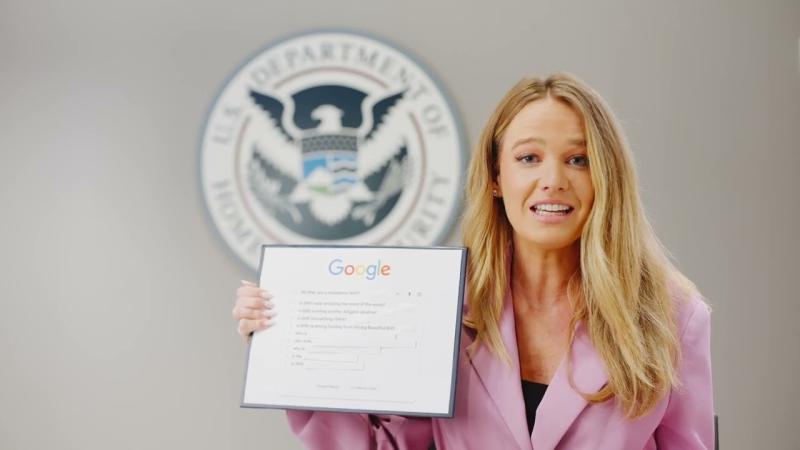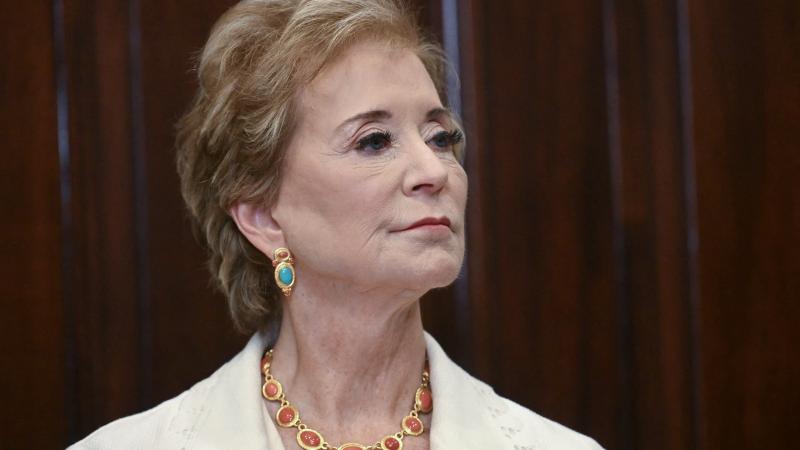More declassified docs show Comey swayed by mysterious intel reports to end Clinton email inquiry
Bombshell declassified docs show how Comey FBI mishandled its investigation into Hillary Clinton's illicit private email server and buried key evidence.
A newly-declassified appendix to a years-old Justice Department watchdog report shows that then-FBI Director James Comey was swayed to preemptively announce the end of the bureau’s investigation into Hillary Clinton based on mysterious classified intelligence reports – and that the FBI failed to investigate thumbdrives containing potentially key information about use of an illicit private email server.
The details are part of a classified appendix to DOJ Inspector General Michael Horowitz’s 2018 report criticizing the politicized conduct of the FBI’s Midyear Exam investigation into Clinton’s mishandling of classified information through the use of a private server while she was secretary of state.
Comey unilaterally announced in a July 2016 speech – about four months before Election Day for the Democratic presidential nomine – the investigation had been concluded with charges being brought against her.
At about the same time, the FBI formally launched its Crossfire Hurricane investigation into claims that the campaign for the GOP presidential nominee, Donald Trump, was colluding with Russia to influence the outcome of the election.
“This document shows an extreme lack of effort and due diligence in the FBI’s investigation of former Secretary Clinton’s email usage and mishandling of highly classified information,” Senate Judiciary Committee Chairman Chuck Grassley, R-Iowa, said Monday as he released the classified appendix to the DOJ watchdog report.
“Under Comey’s leadership, the FBI failed to perform fundamental investigative work and left key pieces of evidence on the cutting room floor. The Comey FBI’s negligent approach and perhaps intentional lack of effort in the Clinton investigation is a stark contrast to its full-throated investigation of the Trump-Russia collusion hoax, which was based on the uncorroborated and now discredited Steele dossier. Comey’s decision-making process smacks of political infection.”
Grassley’s press release stated that in 2016 the FBI had “obtained intelligence reports discussing purported communications between” Rep. Debbie Wasserman Schultz (D-Fla.), who was the chairwoman of the Democratic National Convention at the time, and “two different individuals who worked for the Soros Open Society Foundations.”
Grassley noted that “the intelligence reports alleged that the Obama administration took efforts to scuttle the investigation into Clinton and protect her candidacy” and that the DOJ watchdog annex “shows” that Comey, then-FBI deputy director Andrew McCabe, then-FBI special agent Peter Strzok, and others “did not make serious investigative efforts to determine the veracity, or lack thereof, regarding the intelligence reports.”
The 2018 appendix stated that “the FBI obtained [REDACTED] reports purporting to discuss efforts to influence the Midyear investigation.”
“The initial [REDACTED] report suggested that then-Attorney General Loretta Lynch and then-FBI Director James Comey were interfering in the Midyear investigation to help the Democratic and Republican candidates, respectively,” the newly-declassified appendix revealed. “The second report stated that Lynch had been in contact with a named individual for the presidential campaign of former Secretary of State Hillary Clinton to provide information about the Midyear investigation.”
Horowitz wrote that “the FBI determined that these reports were not credible on their face” but “nevertheless… Comey cited his concern that these reports would be leaked as a factor contributing to his decision not to inform Lynch of his plan to make a unilateral statement announcing the conclusion of the Midyear investigation on July 5, 2016.”
The DOJ watchdog’s largely-unredacted appendix stated that “a [REDACTED] Russian of unknown affiliation were involved in drafting and editing both reports.” The watchdog said that an FBI letterhead memorandum stated that “the FBI did not view the information in the [REDACTED] reports as credible.”
Horowitz wrote that Comey told the watchdog that “no one believed that the [REDACTED] reports were an attempt at purposeful misinformation by the Russians, but that they also did not credit the underlying information in them.”
Comey, McCabe, and other FBI officials told Horowitz that they had not felt pressured by Lynch.
The DOJ appendix stated that “according to Lynch, no one told her that the [REDACTED] reports had factored into Comey’s decision to issue his July 5 public statement.”
Comey cleared Clinton of criminal wrongdoing for transmitting classified information on an insecure and private email server in his speech on July 5, 2016. Comey claimed in his speech about the Clinton case at the time that “although there is evidence of potential violations of the statutes regarding the handling of classified information, our judgment is that no reasonable prosecutor would bring such a case.”
Comey gave the speech after then-Attorney General Loretta Lynch’s Phoenix tarmac meeting with former President Bill Clinton in June 2016.
Lynch had refused to recuse herself from the case while also saying she would accept Comey’s decision on what charges to bring against Clinton.
Comey's speech listed Clinton’s numerous improper and potentially illegal actions, including the fact that 110 emails in 52 email chains contained classified information at the time they were sent or received by Clinton — but he would not recommend charging her with any crimes.
The phrase “gross negligence” appeared in early drafts of Comey’s remarks, Grassley previously revealed, but Comey would use the term “extremely careless” instead of “gross negligence.”
A specific statute — 18 U.S. Code § 793 — deals in part with “gross negligence” in the handling of national defense information, which Clinton came under scrutiny for possibly violating.
The public version of Horowitz’s 2018 report had concluded Comey’s actions were “extraordinary and insubordinate” when he announced Clinton wouldn’t be charged.
“We concluded that Comey’s unilateral announcement was inconsistent with Department policy and violated long-standing Department practice and protocol by, among other things, criticizing Clinton’s uncharged conduct,” the DOJ inspector general concluded in the public version of his 2018 report. ”We also found that Comey usurped the authority of the Attorney General, and inadequately and incompletely described the legal position of Department prosecutors.”
The watchdog said in the newly-declassified appendix that then-deputy attorney general Sally Yates did not recall the saga about these mysterious intelligence reports the same way the FBI did.
“She said that she recalled the FBI informing her that they had picked up intelligence that Lynch was keeping someone on the Clinton campaign informed about the Midyear investigation,” the appendix said. “Yates told us that the FBI described the information to her as either ‘fake intel’ created by Russia [REDACTED] as originating from a source that lacked credibility.”
Horowitz added: “Yates said that she did not recall being shown the [REDACTED] reports. Yates said that she recalled that the discussion with the FBI focused on Lynch’s contacts with the Clinton campaign, not on information that Lynch was attempting to influence the Midyear investigation. She said that she would have remembered if someone told her that these reports raised concerns within the FBI that Lynch was biased.”
The DOJ watchdog wrote that “Yates told the OIG that she was never made aware that the [REDACTED] reports played a role in Comey’s decision to issue his July 5 statement.”
The appendix also contained details from Comey’s claims to the DOJ watchdog.
“Comey said that even though he did not believe the information about Lynch in the two [REDACTED] reports, he became concerned that any emails underlying the reports would be publicly released by the Russian government as part of its ‘active measures’ campaign, and that this would call into question the credibility of a declination announcement by Lynch,” the appendix said. “Comey said that this concern was a factor in his decision not to inform Lynch about his plan to deliver his public statement on July 5.”
Horowitz’s declassified appendix contains a “verbatim translation” of a portion of the first mysterious intelligence reports, with the report alleging that Obama was pressuring Lynch to pressure Comey.
“Recent information appearing in the media about the FBI investigating possible facts of corruption connected with the State Department [under Clinton] and the granting of preferences to Clinton Fund donors created a negative reaction within the party, though this information was known to Democratic Party leaders since June 2015," the report said. "According to Wassermann Schultz [sic], so far the FBI does not have any hard evidence against Hillary Clinton because data was removed from the mail servers just in time. Obama is not in the mood to mar the very final segment of his presidency, his legacy with a scandal around a leading nominee for the [D]emocratic [P]arty. To deal with this he is using Attorney General Loretta Lynch to mount a pressure on FBI [D]irector James Comey. Alas, so far, no concrete results. Comey is leaning more to [R]epublicans, and most likely he will be dragging this investigation until the presidential elections; in order to effectively undermine the chances for the [Democratic Party to win in the presidential elections…”
The declassified appendix also contains a “verbatim translation” of a portion of the second intelligence report as well, with the report alleging that Obama was seeking to downplay Clinton’s wrongdoing while Lynch was secretly providing information about the FBI’s intentions and actions related to Midyear Exam to Clinton campaign political director Amanda Renteria.
“By way of forming a consensus relative to the candidacy of Hillary Clinton, Barack Obama, leading the Democratic Party (DP), sanctioned use of all administrative levers to remove possibly negative effects of the FBI investigation of the business of the Clinton Foundation and the email correspondence of the State Department. Based upon information from Wassermann Schultz [sic], the FBI does not anticipate any kind of direct evidence against Clinton, as there was timely deletions from the email servers," the report said. "The political director of the Hillary Clinton staff, Amanda Renteria [PH], regularly receives information from Loretta Lynch of the Department of Justice, on the plans and intentions of the FBI. Active work is being done on clarification mostly with potential witnesses: the primary witnesses are a number of computer specialists in the Clinton private circle. They represent the only tools which may be used in this matter. Therefore, the threat is minimal…”
Comey seemingly referenced these intelligence reports during Senate Intelligence Committee testimony in early July 2017. The fired FBI director was asked about the impact of Lynch meeting with Bill Clinton on a tarmac in 2016 and what impact that had on his decision to unilaterally announce that Clinton should not be charged.
“There were other things that contributed to that,” Comey replied. “One significant item, I can’t — I know the committee has been briefed on. There’s been some public accounts of it, which are nonsense, but I understand the committee has been briefed on the classified facts.”
The newly-declassified appendix also showed how the FBI failed to investigate key information related to Clinton’s use of a private email server and her mishandling of classified information.
Grassley’s press release stated that the appendix to the Horowitz report “shows the FBI obtained thumb drives from a source during the Clinton investigation” but that Comey, McCabe, Strzok, and others “failed to perform additional, targeted searches of the drives, even though they contained information relevant to the inquiry.”
The senator said the DOJ watchdog report “illustrates that the FBI failed to thoroughly and completely investigate the Clinton matter as a result, as well as vet the serious national security risks created by Clinton’s careless handling of highly classified information.”
Grassley said that “the thumb drives contained highly sensitive information exfiltrated from U.S. government agencies, including the Department of State, as well as then-President Barack Obama’s emails and, potentially, congressional information.” But “the thumb drives were never reviewed as part of the Clinton investigation, contrary to the recommendation of a draft FBI memorandum,” Grassley said. “The DOJ OIG report also shows the drives should have been immediately reviewed for foreign intelligence purposes, but were not.”
Horowitz wrote in his newly-public appendix that “near the end of our review, and after we had conducted nearly all of our interviews, the OIG obtained emails from the FBI’s [REDACTED] system indicating that in late May 2016 FBI OGC lawyers drafted a memorandum requesting access to the thumb drives for purposes of the Midyear investigation.”
“This draft memorandum stated that a review of the thumb drives was necessary to conduct a ‘thorough and complete investigation’ and to ‘assess the national security risks’ associated with former Secretary Clinton’s use of a private server,” the DOJ watchdog wrote. “However, the FBI never finalized the memorandum or submitted this request to the public.”
Horowitz added that “for various reasons, we were unable to re-interview several former FBI officials involved in the Midyear investigation, including Comey and McCabe, regarding discussions about the request to search the thumb drives.”
“Today, the Department of Justice honored Chairman Grassley’s request to release information relating to former-FBI Director James Comey’s failed investigation into Hillary Clinton’s mishandling of highly classified information during her tenure as Secretary of State,” Attorney General Pam Bondi said on Monday. “I commend Chairman Grassley for his unwavering, years-long commitment to exposing the truth and holding those who seek to conceal it accountable. This Department of Justice is fully committed to transparency and will continue to support good-faith efforts in Congress to ensure accountability across the federal government.”
Jason Foster, a former Grassley staffer and the current founder of Empower Oversight, tweeted earlier this month that “as @ChuckGrassley's chief investigator at the time, we arranged a bipartisan briefing for Senators on the Judiciary Committee. Then-DOJ IG Michael Horowitz summarized the information in the appendix to the several Democrat and Republican Senators who chose to attend.”
Foster said that “each of them, from both sides of the aisle, expressed shock that the gov't turned a blind-eye to the information at issue. Even prominent Democrat Senators acknowledged in this private setting that it required further investigation, even if it was likely to be politically embarrassing for their party.”
The public version of the 2018 report by the DOJ watchdog also uncovered evidence that the FBI had delayed following up on information about Clinton emails found on a laptop belonging to disgraced former Rep. Anthony Weiner, D-N.Y., and that the delay may have come from the FBI’s desire to emphasize the baseless Trump-Russia collusion investigation over the Clinton emails scandal.
In 2016, Strzok had exchanged a host of anti-Trump texts with now-former FBI lawyer Lisa Page, with whom he was having an affair. Horowitz wrote, “We did not have confidence that Strzok’s decision to prioritize the Russia investigation over following up on the Midyear-related investigative lead discovered on the Weiner laptop was free from bias.”













